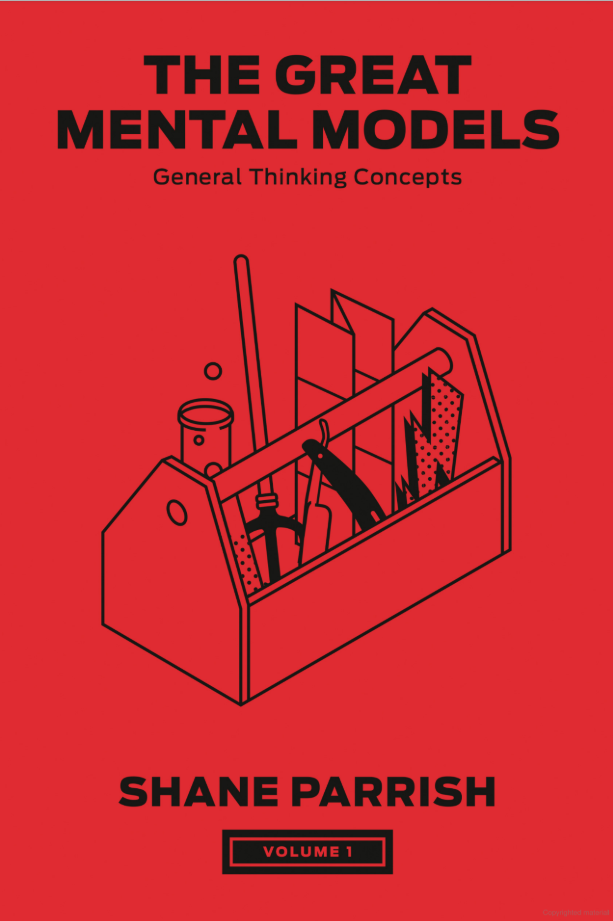Perhaps it’s not surprising that our views on thinking start with books.
It’s not about the book itself, but the thinking that lies behind it. To express an idea in print is itself a deep exercise in thinking. It requires research, synthesis, and reorganization of concepts into a coherent whole. At its essence, an individual book represents a small slice of thoughtscape, a grain of sand within the beach of ideation and thinking.
The world, as we know, is full of books. Unless it’s an incredibly rare tome, books themselves tend to have one of the fastest economic depreciation schedules of any object in the world. But the ideas within a book? They have the capacity to change everything.

One of the books that helped to kick-start our work was Shane Parrish’s The Great Mental Models, Volume 1. We had been following Shane’s thinking for some time via his Farnham Street blog, and when he published the first volume in what is now a 4-volume series, we were impressed with the way he had explored many of the same thinking models we had been reading in our own lives.
We always smile when we see the Charlie Munger quote that Shane uses at the introduction of the book:
“It is remarkable how much long-term advantage people like us have gotten by trying to be consistently not stupid, instead of trying to be very intelligent.” – Charlie Munger
This is not to extoll the virtues of being “book smart”. There are plenty of millionaires and billionaires out there who don’t spend their spare time reading, and we observe that the smartest person in the room is not commonly the wealthiest or most effective person. At the same time, books provide a valuable glimpse into the key nature of certain mental models and the thoughtscapes they inform.
Munger’s quote is a valuable one in the world of thoughtscapes: it’s as much about knowing what NOT to do as it is about knowing what TO DO. Error identification and correction in our thinking is a key part of an effective thoughtscape, as it is incredibly seductive to think that one’s newest idea is world-changing brilliant. Until it isn’t, right? That necessarily implies that exploring a thoughtscape is not simply dreaming or idle thought: it is the product of deep work, often accompanied by being in “flow” where you’re able to very intentionally guide your thinking toward a purpose.
Curious enough to talk further? We always welcome a good conversation… over books, over coffee/tea, and especially combining all three!






Leave a Reply